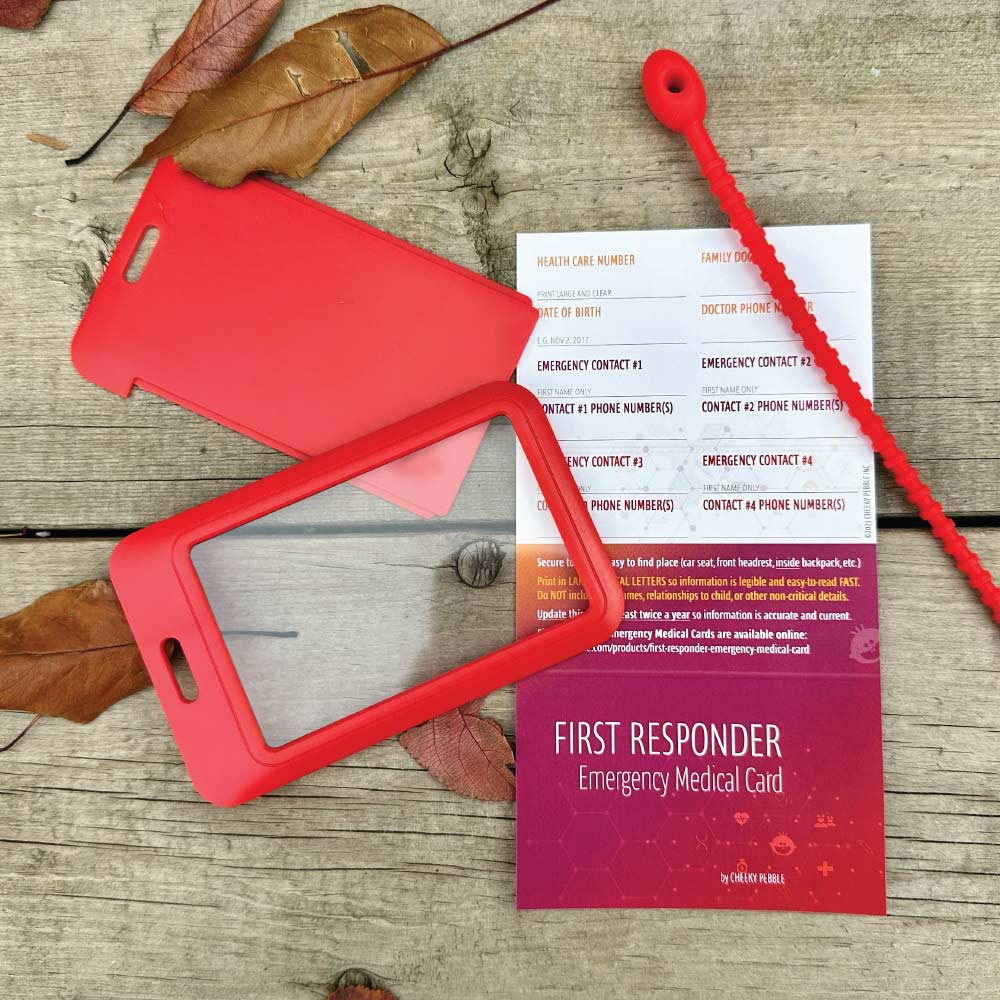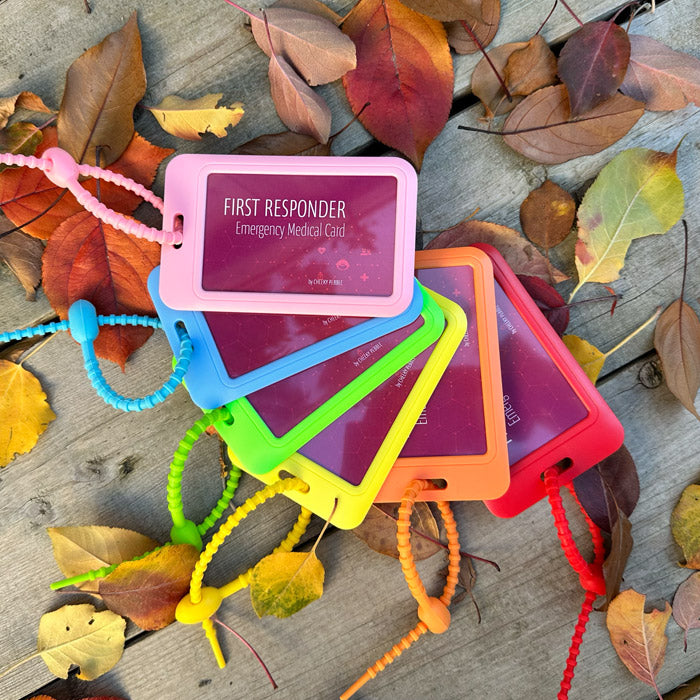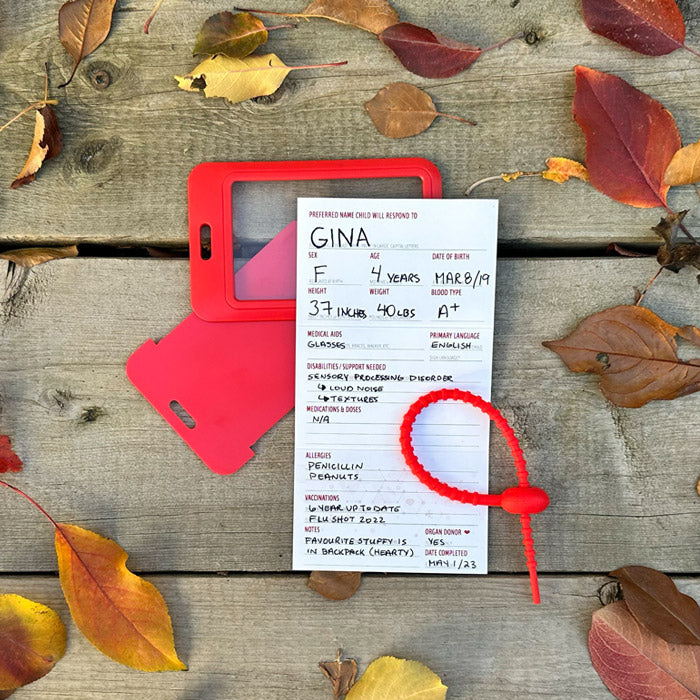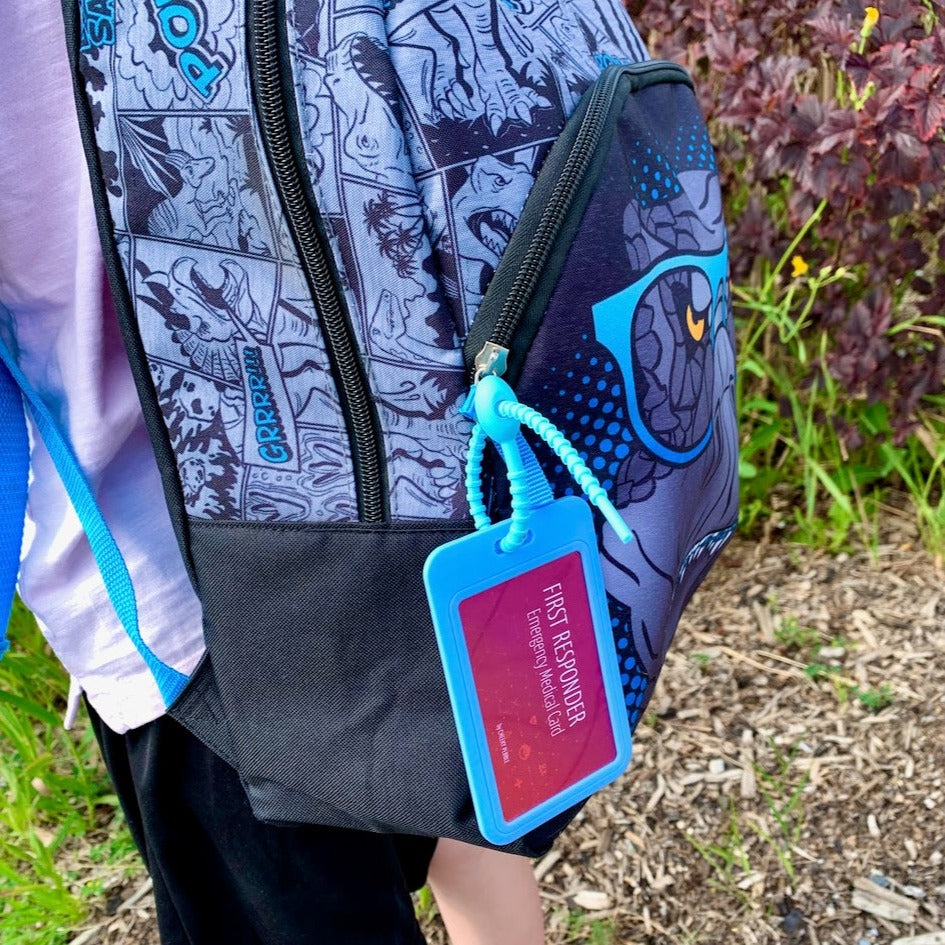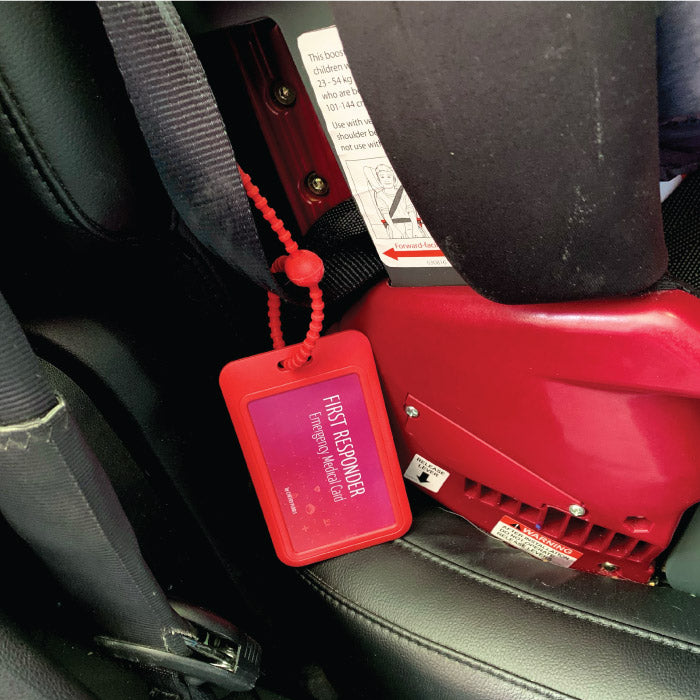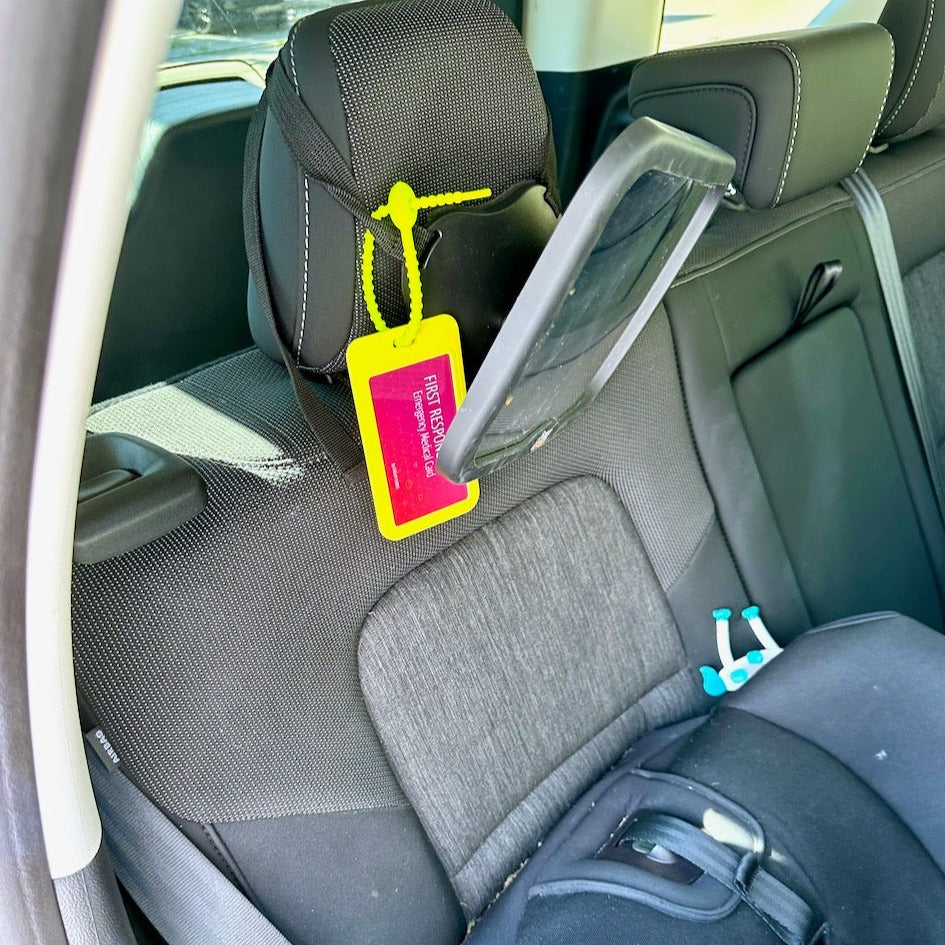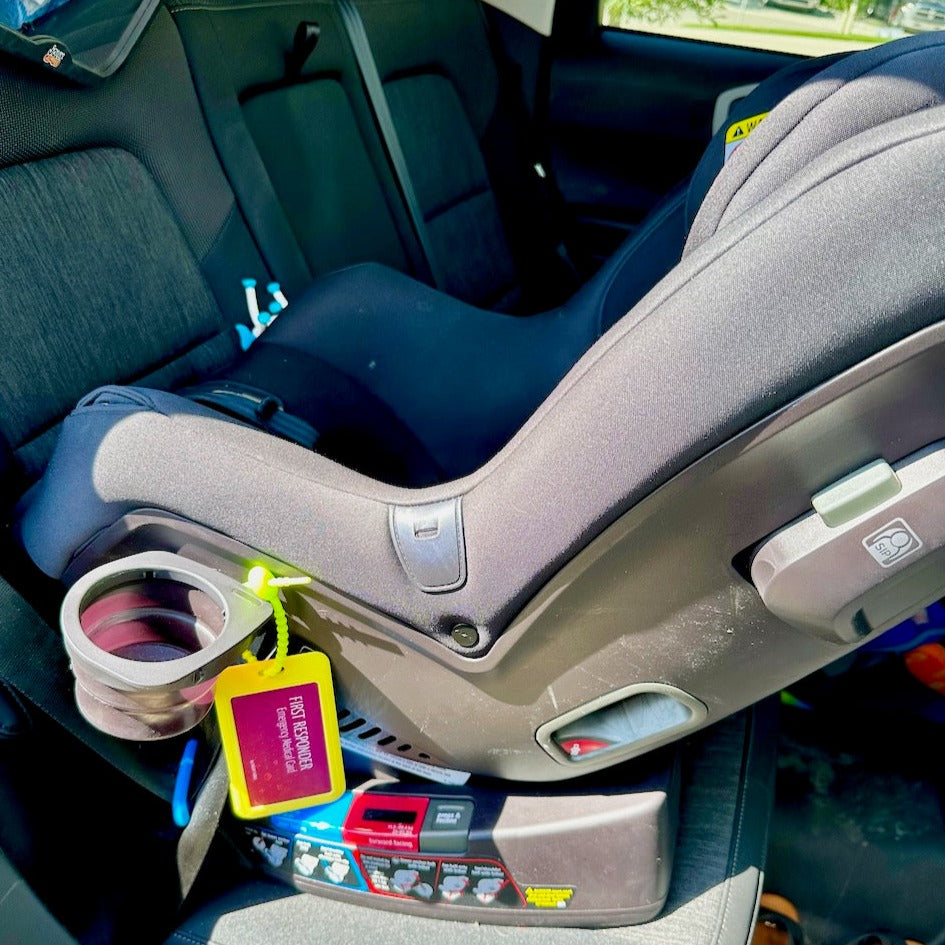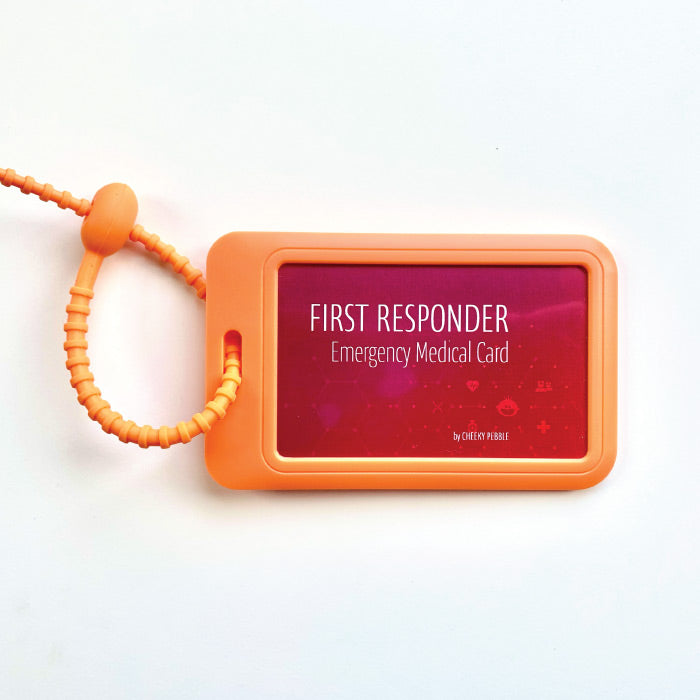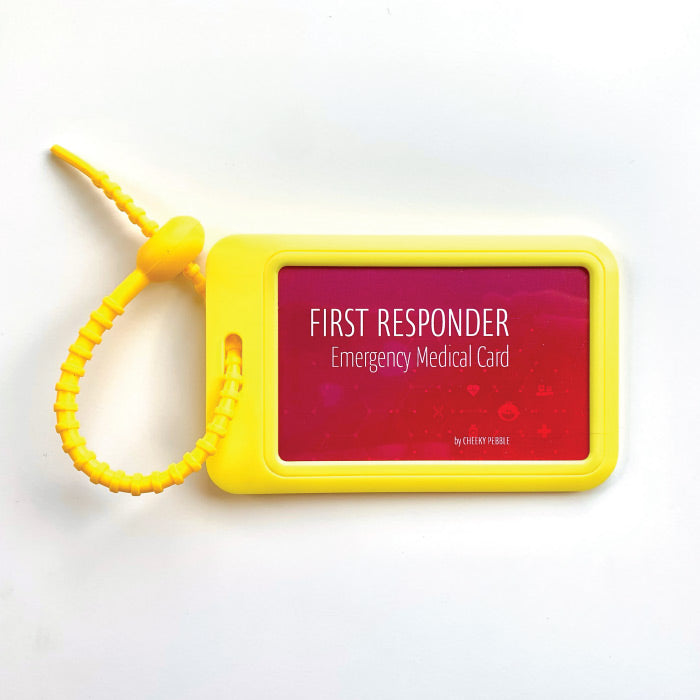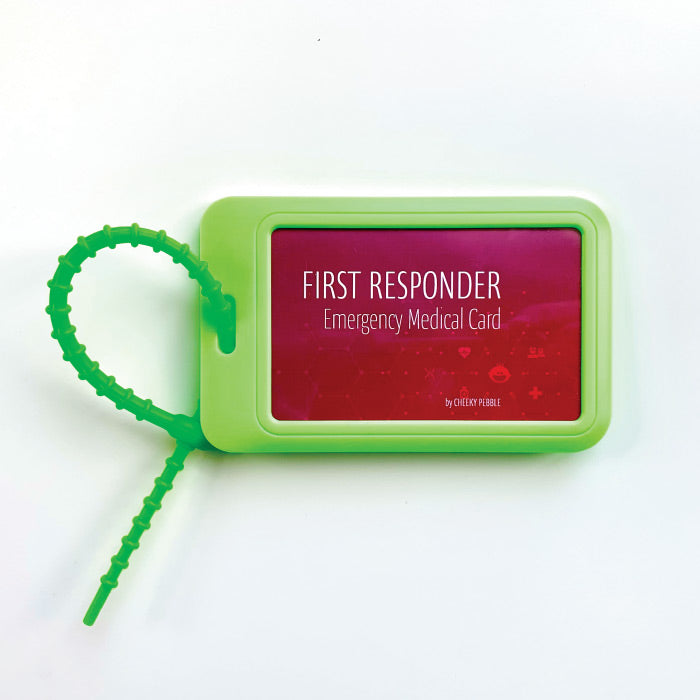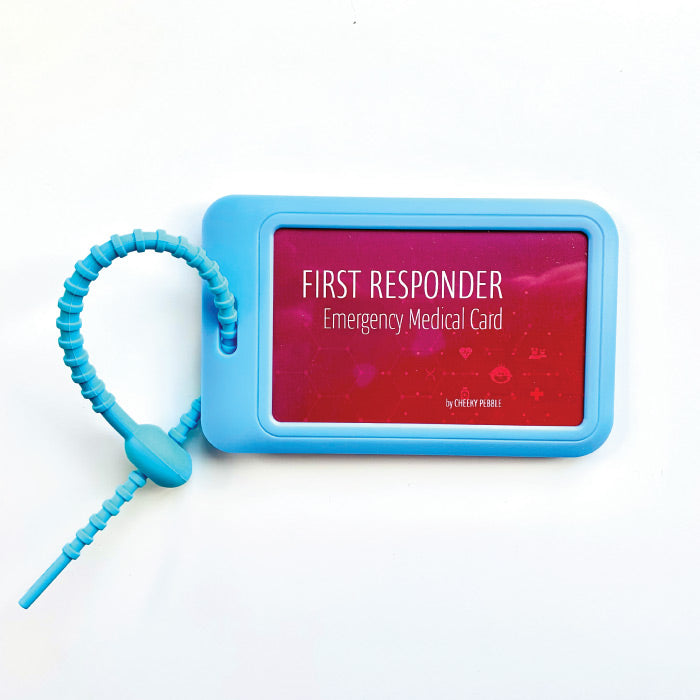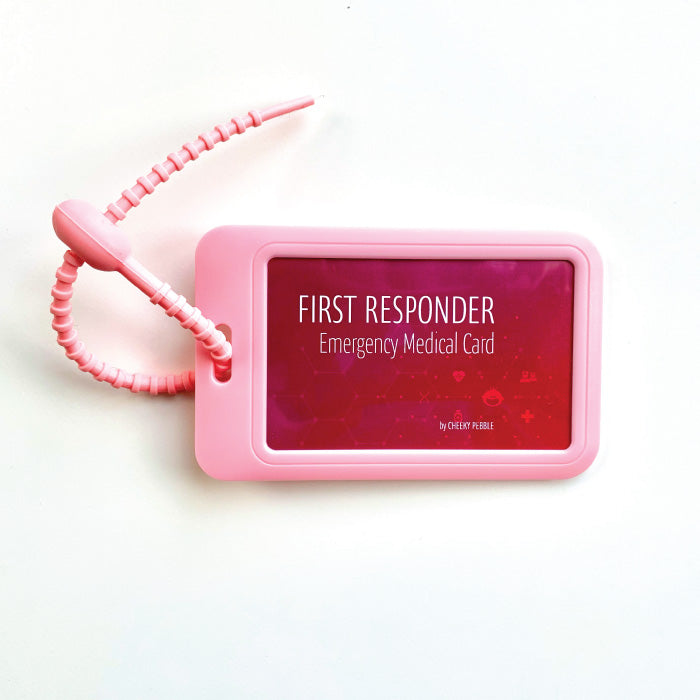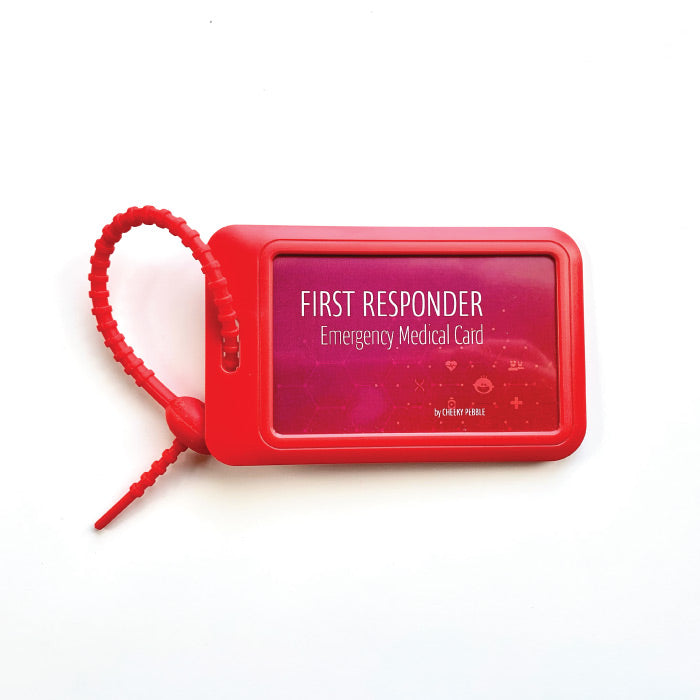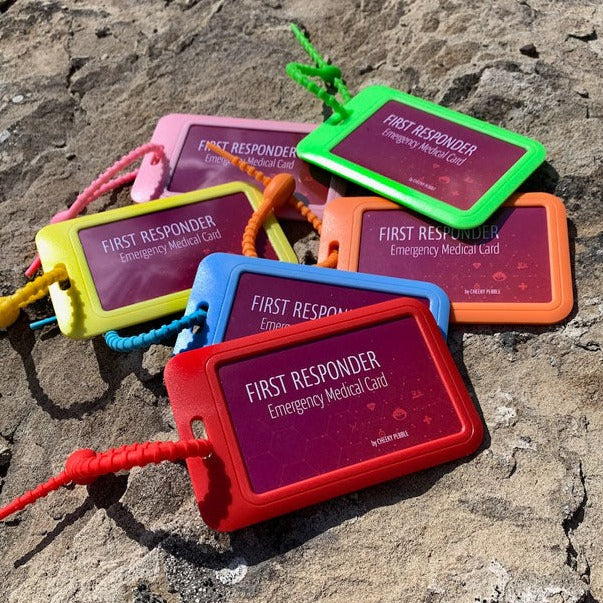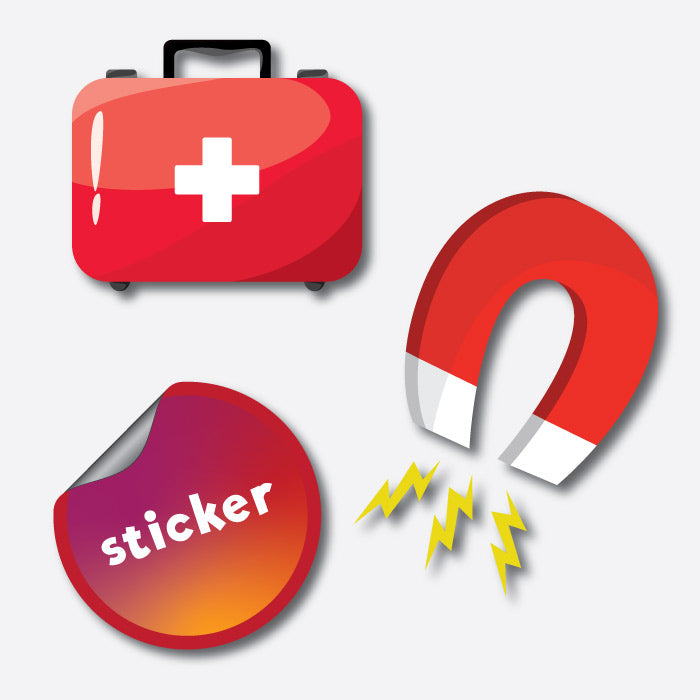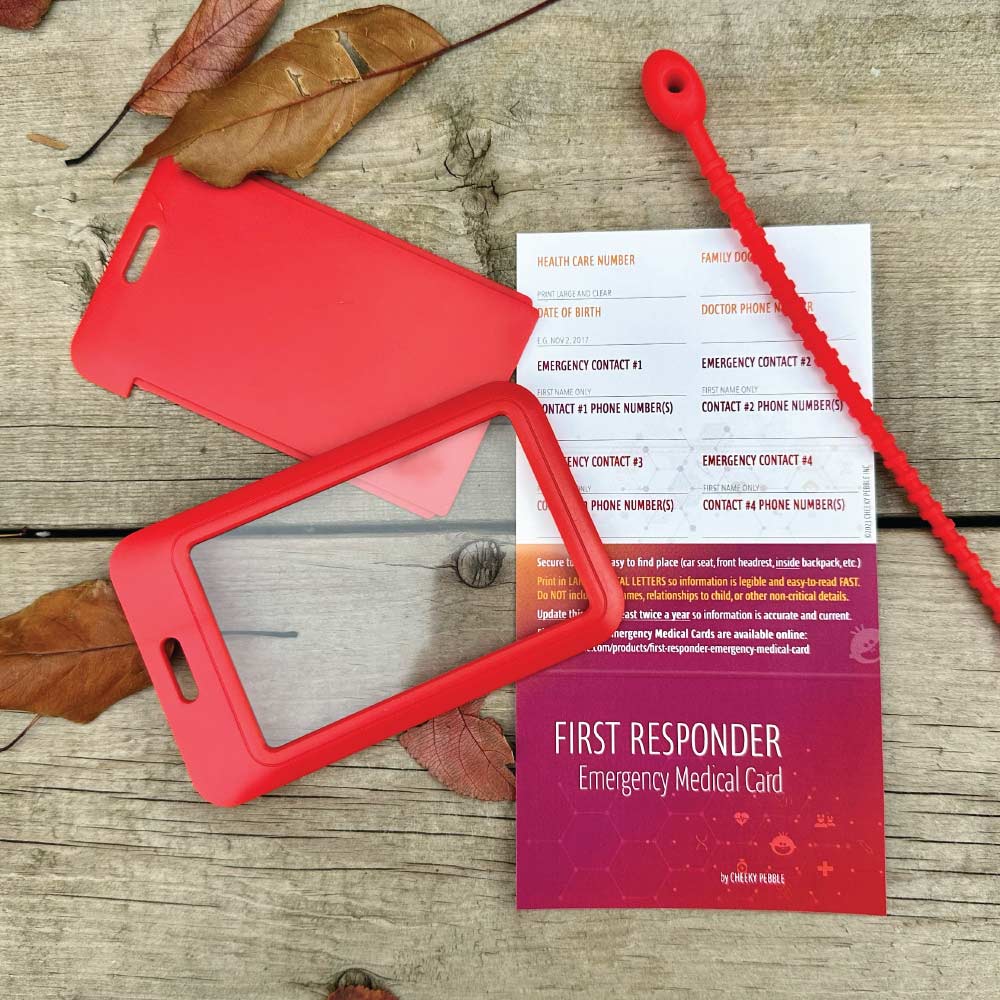Additional Information: First Responder Emergency Card
Our First Responder Cards were designed to provide Emergency Services personnel (or other trusted adults) critical information about your loved one if they are in an emergency situation and caregivers are unconscious, uncommunicative or unavailable.
It's horrible to contemplate not being able to help but what if you've been in a car collision and are unable to talk? Or your precocious child wanders off at the mall? Your very active Grandmother went for a walk and hasn't returned? These situations DO happen and our First Responder Cards are an additional layer of help for them, and extra peace of mind for you.
It is recommended to update these cards every six months to keep the information accurate and beneficial while children are actively growing.
BENEFITS
- Loved one is addressed by name which helps keep them calmer
- All medical information is available so no medication conflicts/accidents should happen
- Special needs can be addressed appropriately
- Emergency contacts are listed so other caregivers are just a call away
- Gets them home safer, faster
CARD INFORMATION
- Complete the card in PRINTED CAPITAL LETTERS so details can be read by anyone
- WRITE AS LARGE AS POSSIBLE (especially on the top panel) so all the critical information is easy-to-see and read
- DON'T INCLUDE last names or relationships to child (just in case this card gets lost)
- Child’s name and other personal information should never be easily visible for strangers to see. Keep everything enclosed within the hard case.
CARD CASE PLACEMENT RECOMMENDATIONS
- Attach in a very visible location that's easy to see at a quick glance
- Make sure the case is accessible and it's easy to remove the silicone tie
- Do not attach anywhere that interferes or decreases the effectiveness and functioning of carseats or seatbelt
- Keep case free from tape, glue or other sticky things that might make it harder to slide open and access the information card
- Keep all information hidden and enclosed within the case
For Infants:
- Infant Car Seat: Attach directly to your infant’s car seat. Paramedics will leave your child in the carseat and take the entire carrier if your child requires assistance.
- Diaper bags are also a great place to keep these cards when your child isn't in their carseat
For Toddlers & Older Children:
- Vehicles: Attach to the car seat, booster seat or the headrest of the seat in front of the child
- School Bag: And additional card is recommended for school-aged kids for inside their school backpacks or lunch kits in the event something happens while they are at school.
For Seniors:
- Silicone Tie: Attach to belt loops or other clothing where it's very visible
- Lanyard: Wear around their neck or waist where it's easy to see
- Wallet: Another great location to keep vital information if they always have their wallet with them.
Use these cards wherever you feel they would be beneficial to your child/loved one. They are very helpful in the event of an emergency and your person requires help.
First Responder Emergency Medical Card
